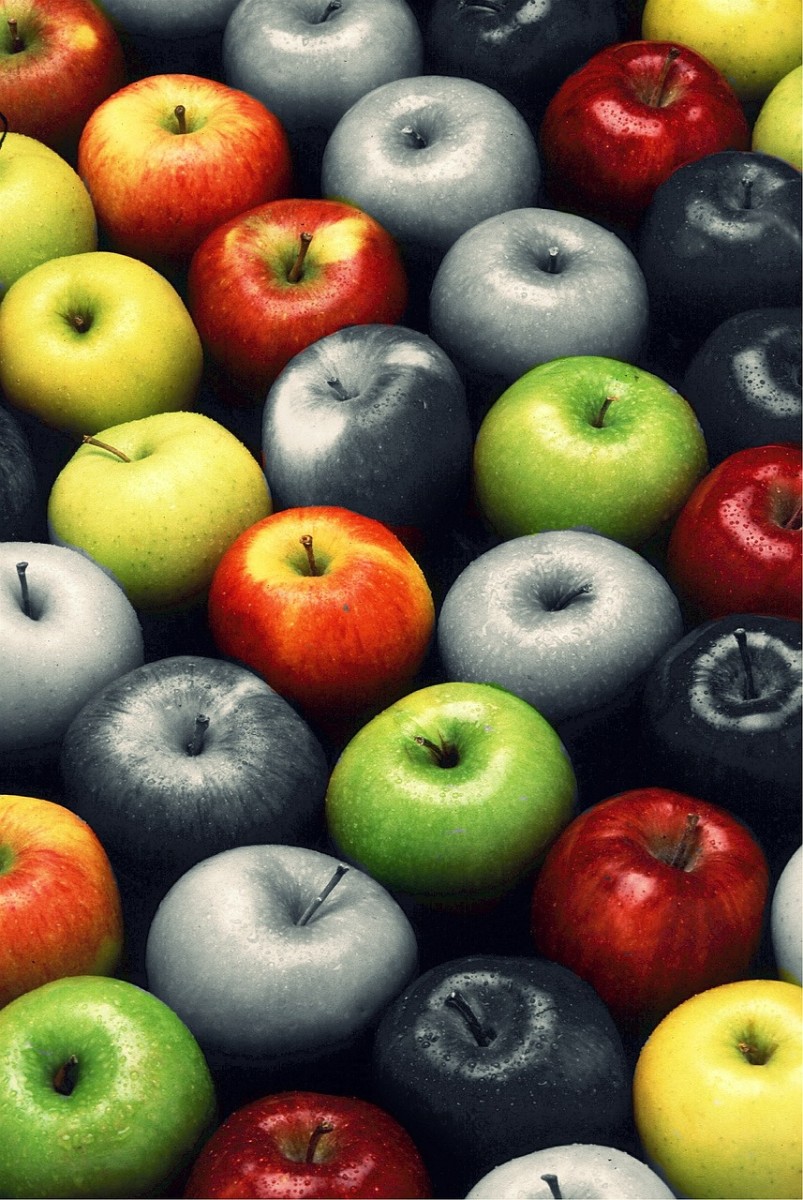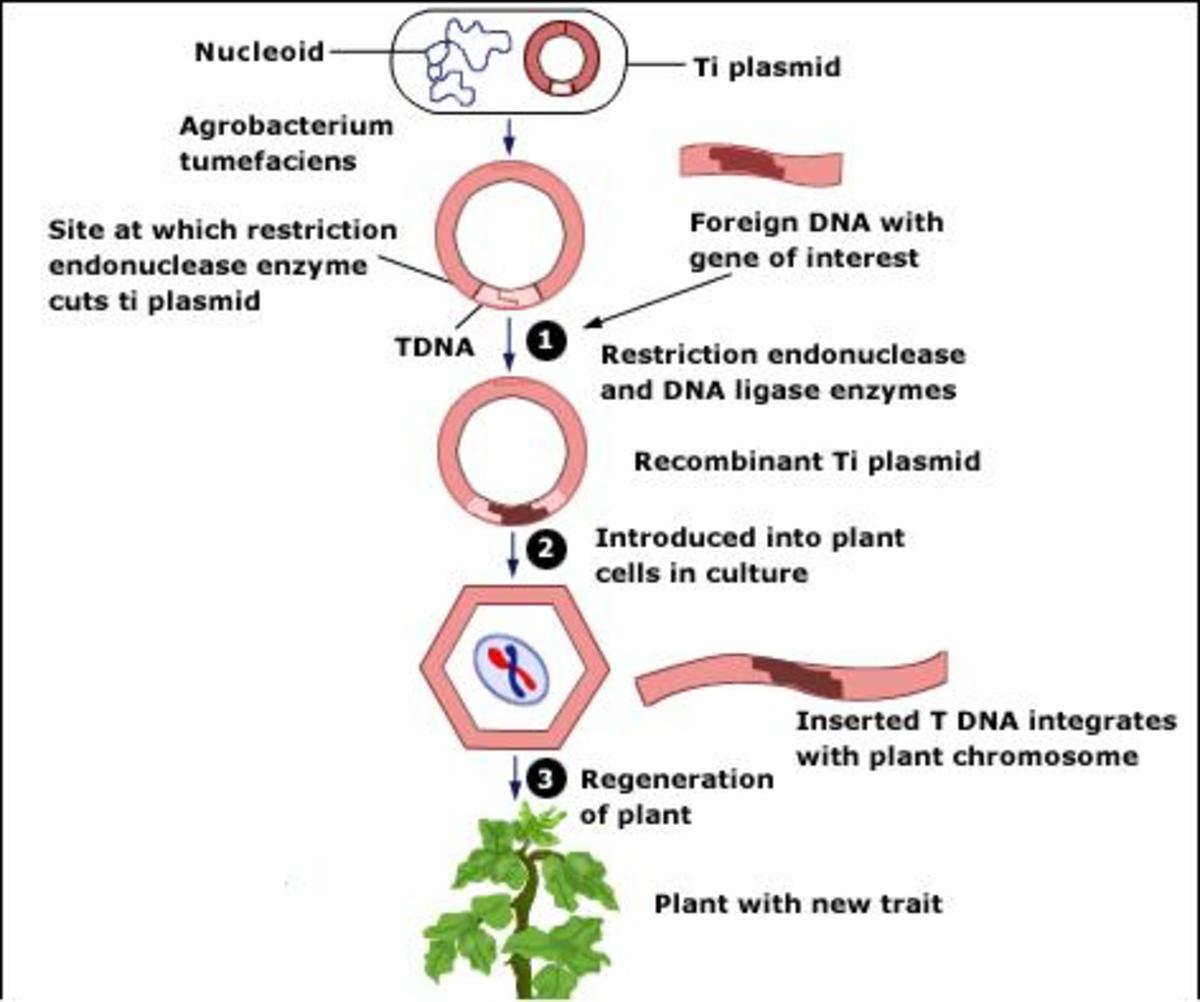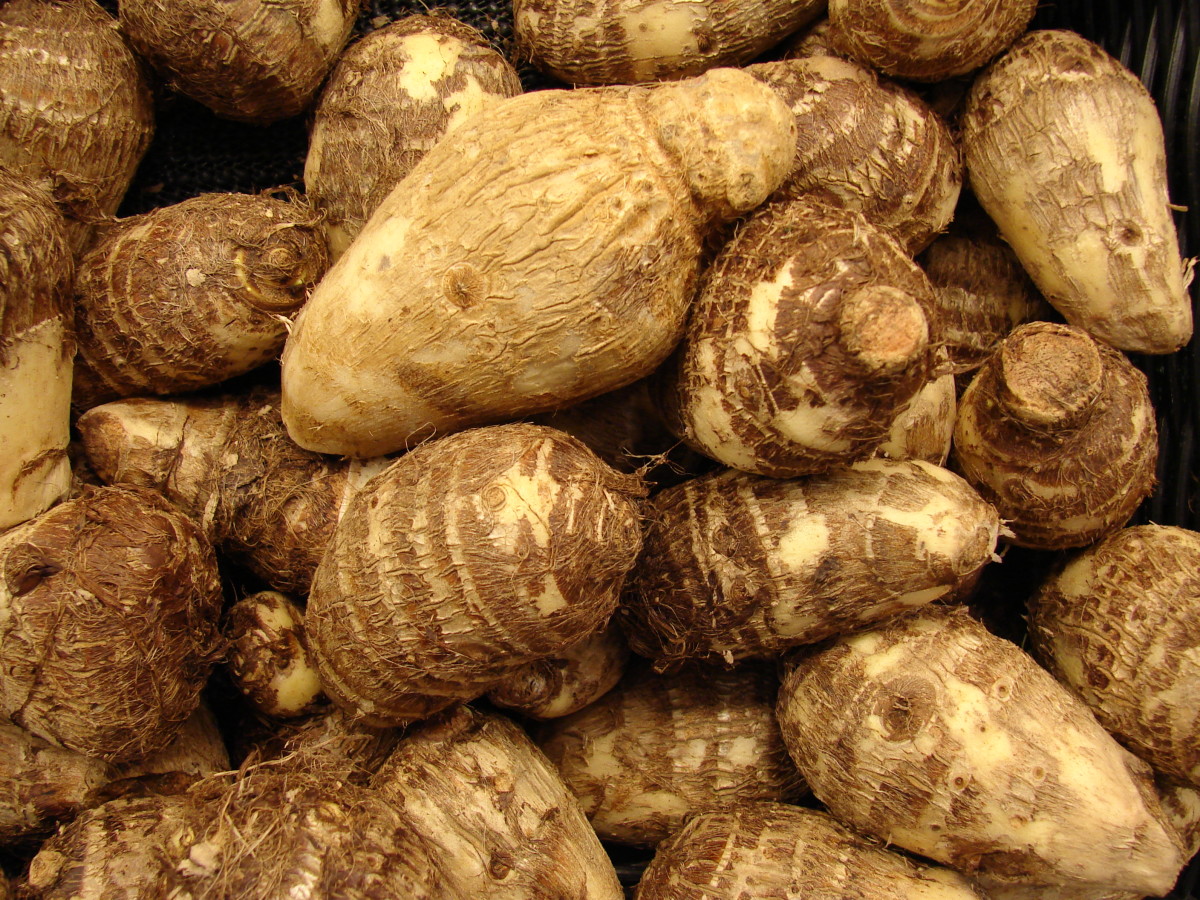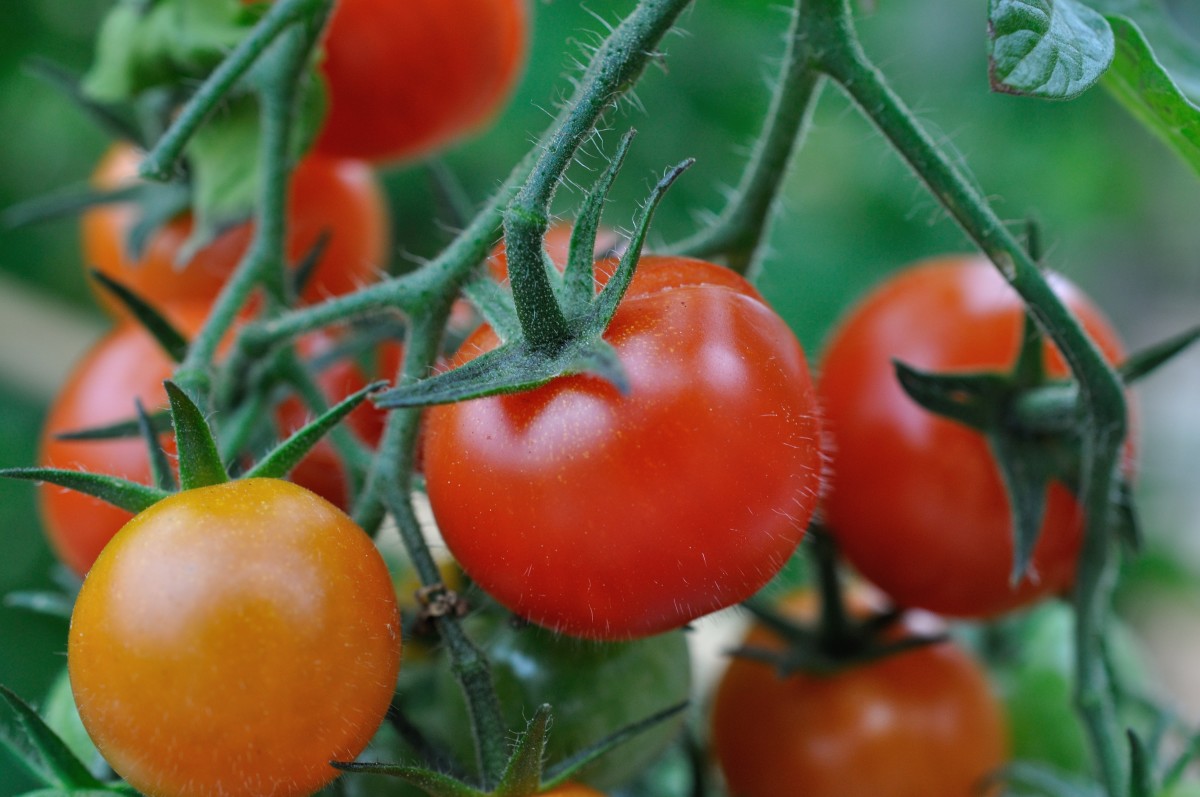GMO, Genetically Modified Organisms
Farming Genetically Modified Organisms
Farming is a huge and hot topic now and really for as long as I can remember it has been a way of life more many. Small farms are seemingly a thing of the past and the "industrial farms" are far more prominent. I always try to research thoroughly so I can articulate in a way that even someone who may find the topic completely foreign to them can understand.
I will shed some light on what a GMO (Genetically Modified Organism) are, as well as what an organic crop is. While it is not really as cut and dry as you may think, we will dig deeper and find the answers we seek.
While opinions vary from person to person, if you read my other articles you know I take the common sense approach to everything, while doing research. Not everyone understands technical jargon so I will do my best to cover everything with the least amount of "techy" speak as possible.
Do you know what a GMO is?
Eaten any of these GMO's Lately?
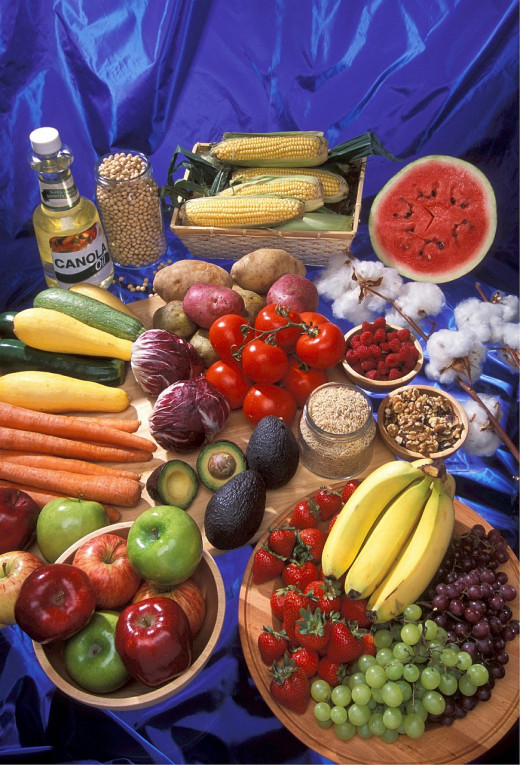
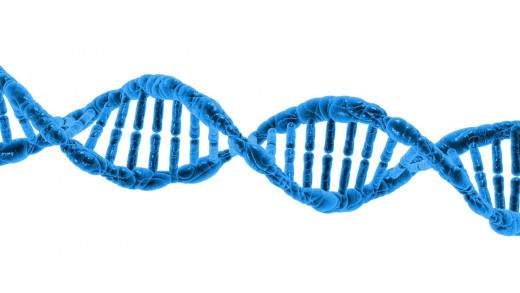
What's The Big Deal?
A GMO or Genetically Modified Organism is essentially what it sounds like. Something Genetically altered in a lab. What happens is the genes are taken from the DNA of one organism or species and artificially forced into that of another unrelated species or organism. The unrelated or foreign genes can come from many different sources. Often times genes from humans, viruses, bacteria and even insects are used.
You maybe scratching your head wondering why they are even doing this to begin with. Weed control, pest control, and production are all the reasons behind the genetic manipulation of plants and crops.
To put it in a way anyone can understand- It is like taking a tomato and filling a syringe with Round up or other weed killer and injecting it into the the tomato. Then it hits the market, you take it home and your family unknowingly enjoys a little weed killer with dinner (not the same as drinking from the bottle but still scary right?).
Now that does not sound to appetizing does it? I think not. Yet there they are on your plate, in a restaurant and at the supermarket! The absolute worst part of all this is the FDA does not require genetically modified products to be labeled! So if you do not research a particular product or brand or look for CERTIFIED NON GMO on a product label you are- well as far as I am concerned ingesting unnatural ingredients.
You may be wondering why you should be concerned about what you are ingesting and why you should continue reading. Genetically modified crops and products containing them have been linked to many health issues when studied in lab rats and livestock. These issues include, sterility, allergic and toxic reactions, sick and even the death of livestock. Studies show significant damage to all internal organs of the animals as well.
If you research you will also find that the deaths of over 1500 sheep can be linked back to ingestion of Bt cotton a plant that has been modified to produce pesticides on the inside, meaning no chemicals need be sprayed on it.
There have been no studies conducted on the long term effects of ingesting genetically modified products on humans.
If you need further convincing, as yourself why over 26 countries that have banned the use of genetically modified products completely. If you add in the number of countries that also have limits or partial bans on genetically modified crops the total is 60! I may not be a rocket scientist but I really doubt that 60 countries, all with different researchers and scientists are all wrong!
Now I sit and wonder why my good ole United States is not following countries like France, Germany, Hungary, Luxembourg, Greece, Bulgaria, Poland, Italy, Mexico, Australia, Austria, China, Russia and India. With many others continuing to push through parliament for bans or limitations.
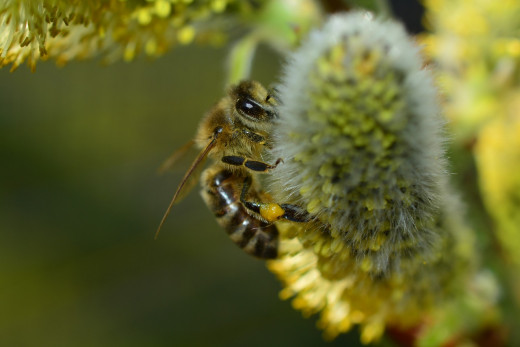
Environmental Impact
The effects of growing genetically modified crops on the environment are, cross-pollination, super weeds and toxicity just to name a few. While these may all seem harmless in the written word they have a major impact on the environment and fragile ecosystems.
These genetically modified crops are engineered to have natural weed killer or repellent in their DNA, this means less work (no work) for industrial farmers. The problem is that these plants can then be cross-pollinated with any other nearby plants, farm or wild of the same species. Although soy crops are not at risk since soy by nature does not cross-pollinate.
There has also been experimentation with 'pharma-crops' as well, making the cross-pollination risk a bit scarier. Ideally the goal of the "pharma-crop" is to genetically alter the crop to produce medicine and/or ingredients for medicines.
The worst part is that if you are attempting to grow all non-genetically modified and organic crops, if another farm nearby is going the genetically modified route, odds are your crop has now become contaminated with the genetically modified DNA through cross-pollination.
Toxicity can effect any nearby streams from these pesticide producing plants and crops through natural watershed. When it rains the water hits the crop fields and leaches through the soil and inevitably some will end up in a nearby water source. Weather it be a natural spring or river maybe even just a small stream they can become contaminated possibly causing adverse effects on the marine life, the wildlife that drink from the water could be effected as well.
These genetically modified crops that were engineered to eliminated weeds and pest, have done just that. Yet, they have created new pests in the absence of the plants natural pest that they eradicated trough the modification of the crop. There is a very interesting article about boll weevile eradication and the addition of a new insect pest for cotton crops by The Delta Farm Press.
It is common sense in a way, survival of the fittest if you will - if you eradicate a plants natural pest likely the next pest in line will happily take its place and munch away despite your best efforts.
Super-weeds were created through cross-pollination, the plants that were engineered with weed resistant DNA ultimately cause weeds to build up a natural resistance to pesticides. When you think of weeds like 'Giant Hogweed' that is federally listed as a noxious plant and can cause blindness and phytophotodermatitis in humans being resistant to weed spray, is very discouraging if one would start growing near your home. I am against using pesticides in most situations, but I do believe that if I found a Giant Hogweed that may be one instance I may forgo my morals!
There really are not enough significant studies to say that genetically modified organisms are safe, for livestock, pets, wild animals, bodies of water and even humans. This is why it is so concerning that the FDA does not require labeling of GMO products at all, they happily accept and endorse the products. It is kind of like the old saying 'they say' or 'because they say so' - well who are they and why should I be letting them tell me what I am putting in my body?
Whats Cooking?

No Label Requirements
If you are like me at this point you are wondering why are these genetically modified organisms not being labeled as such? In short, it just is not profitable, so many people leaning towards eating clean and organic that the labeling of genetically modified organisms and products containing them will put a financial hurt on many corporations.
Food and biotechnology agents spend millions of dollars lobbying against the labeling of genetically modified organisms each year. By the second quarter of 2014 a staggering $15.4 million dollars was disclosed as the amount spent on lobbying efforts. More than triple the amount spent in 2013! The worst part is, think of how many starving families that money could have fed, yet it is being used as hush money to support corporate agendas. Basically paying to keep the public in the dark as to what we are ingesting.
This bill that biotech companies are lobbying for has been called D.A.R.K an acronym for "Deny Americans The Right To Know"". The DARK act would block states from being able to require the labeling of Genetically Modified or Genetically Engineered products.
Some of these biotech companies should be rather familiar at least in name. Monsanto, DOW, and Dupont just to name a few. As I research further and further I wonder if at some point someone will knock down the door and seize my laptop and if I will be detained for questioning in some dark room. I am only kidding but it is one of the "shadiest" enterprises I have ever researched! There is hope however; many states have passed laws mandating that GE (Genetically Engineered-GMO) items must be labeled.
By now, I hope you know that Non- genetically modified or heirloom seeds are best. Nothing artificially injected into your seeds that will inevitably contaminate your body. The scariest thing I found in my research is attempted bans and outright bans on heirloom seeds in some areas of the world. Why should we not be allowed to keep a seed? Its not like crystal meth or some other horrible drug it is just a seed, it is just the potential to feed our families for generations to come.
Why Are We Eating Genetically Modified Organisms?
The why behind the creation of genetically modified organisms boil down to cold hard cash. It creates less work and allows for more automation of the farm, requiring less hands on work, in turn costing less man hours to produce large quantities of product. Think of it like Farmville on Facebook, you plow, you seed, you water and harvest and you rake in the profits. In the real world, or I should say in my southern upbringing there is more to farming than sitting in a piece of equipment on your bum letting the equipment do all the work for you.
Raising or growing these genetically modified crops eliminates the need for the farmer to get down and dirty and weed crops or deal with possible insects that maybe eating away at their crops. Crops as far as the eye can see and you do not have to walk your rows checking for blight or really do much by hand at all.
We never used pesticides or GMO crops growing up, we used heirloom seeds that Grandmother had been cultivating for years. We used whatever manure was available too, and kitchen scraps for fertilizer. I have been giving away food for years because I had more than I could handle yet I never purchase fertilizer or pesticides.
I hope you find that this has sparked your interest and the idea that we need to look more towards heirlooms and non-genetically modified organisms for the sake of the environment and our bodies and of course our future.
While there has been no significant studies to show the effects of GMO on the human body, you can look at cancer statistics to the "pre-GMO" times verses today and see a significant increase.
What You Can Do
If you are not lucky enough to live in a state that requires the labeling of GE products, or a country that bans them entirely, there is still hope.
You should look for 'certified non-GMO' on food labels. Keep in mind just because something says organic it is not Non GMO. You need to look for food labeled 100% certified organic, and buy at local farms and farmers markets when you can.
If you want to take a more proactive approach you can contact the Center For Food Safety via the website or email office@centerforfoodsafety.org. If you would like more information on how to begin and where to start a labeling initiative in your city or state.



